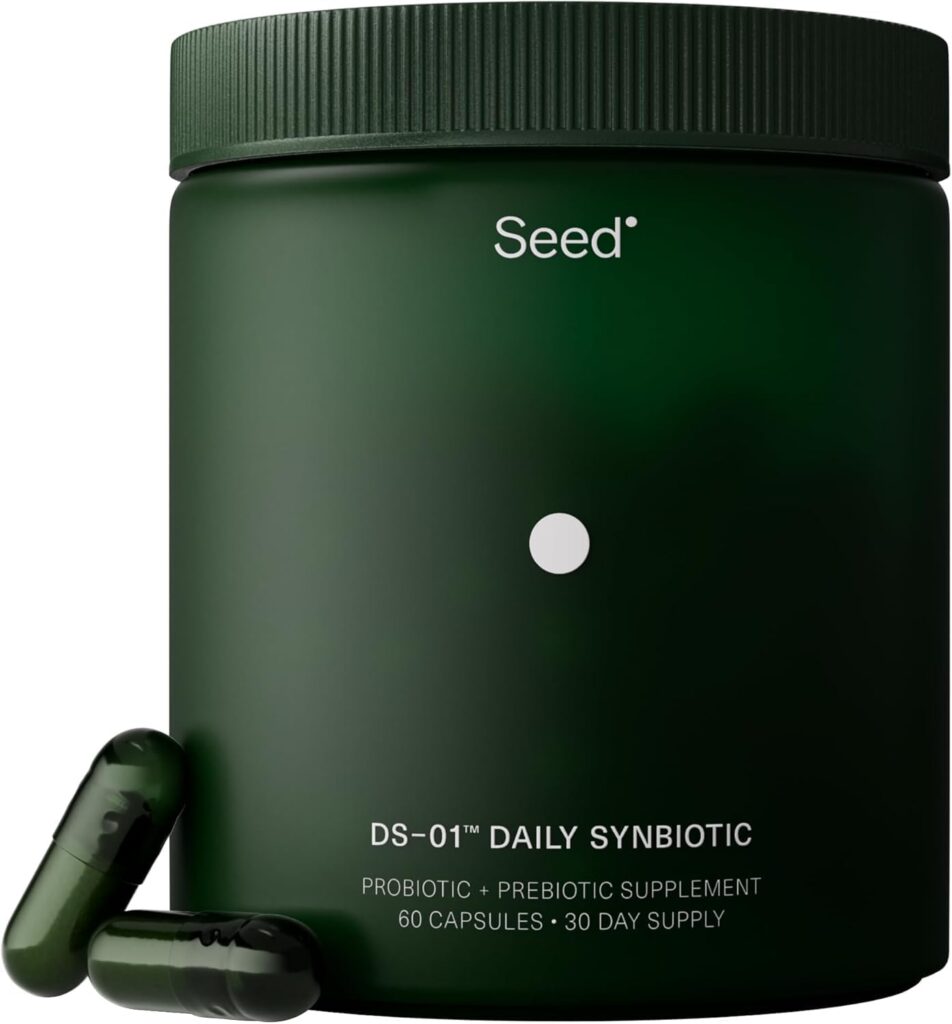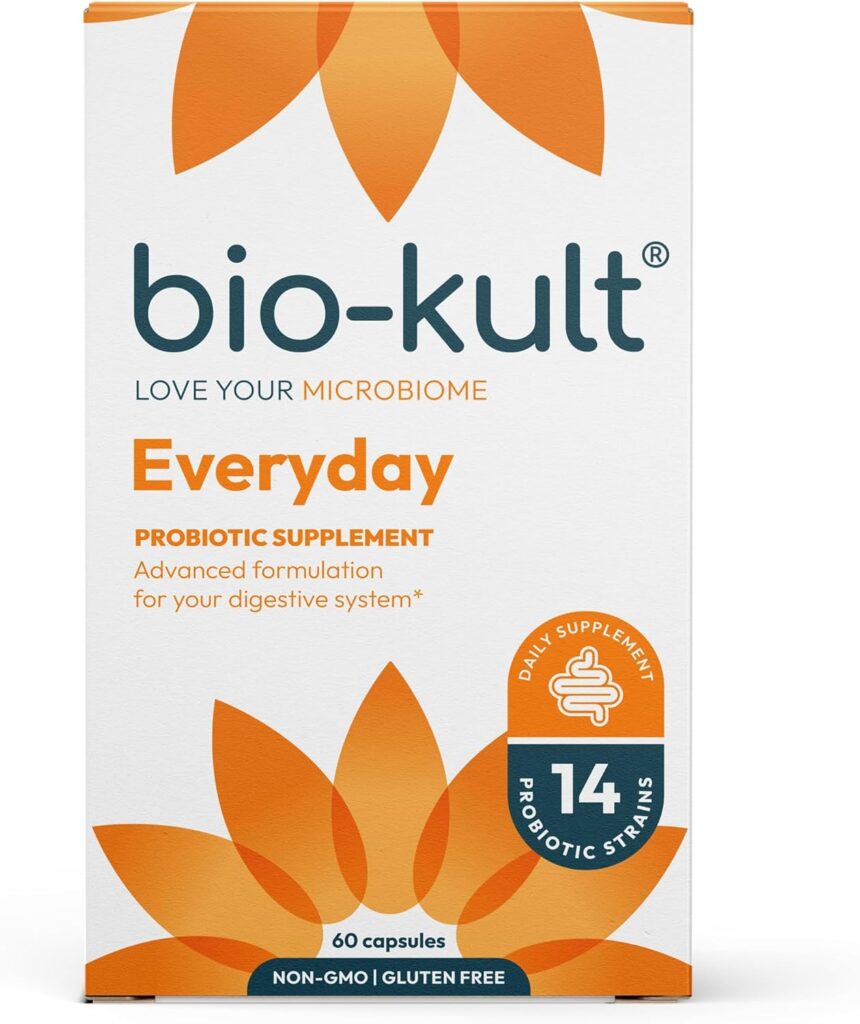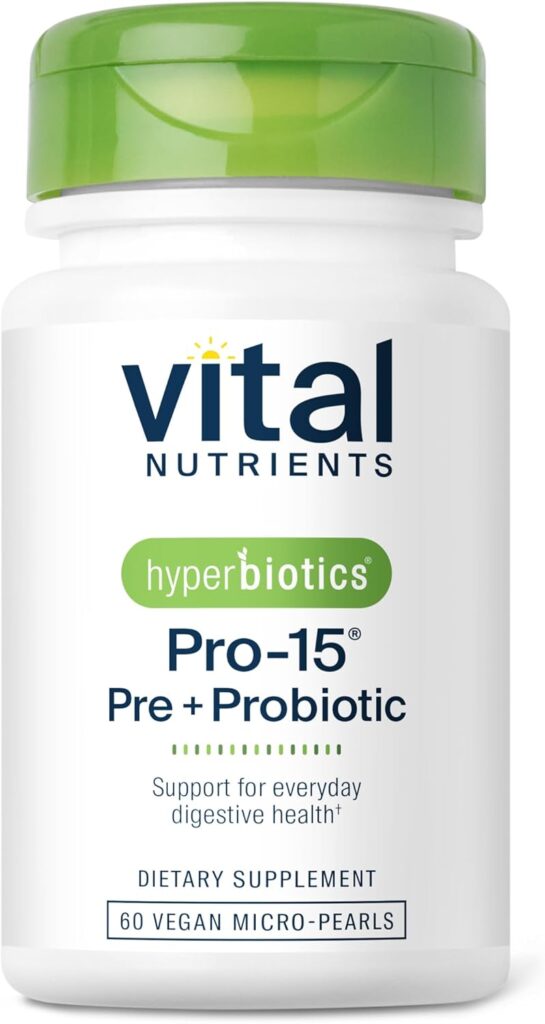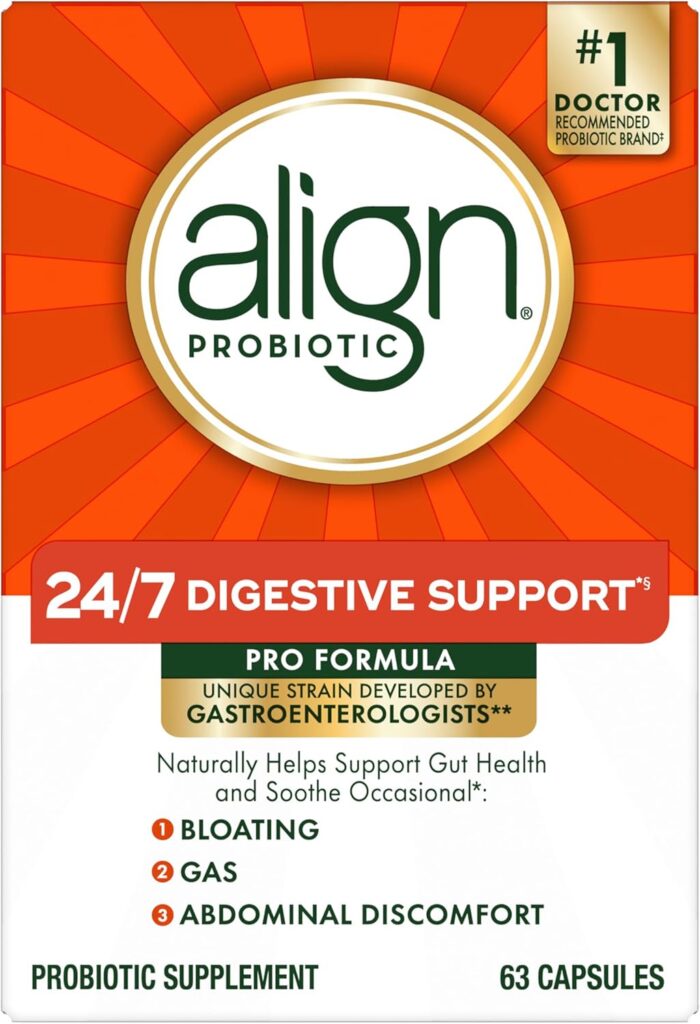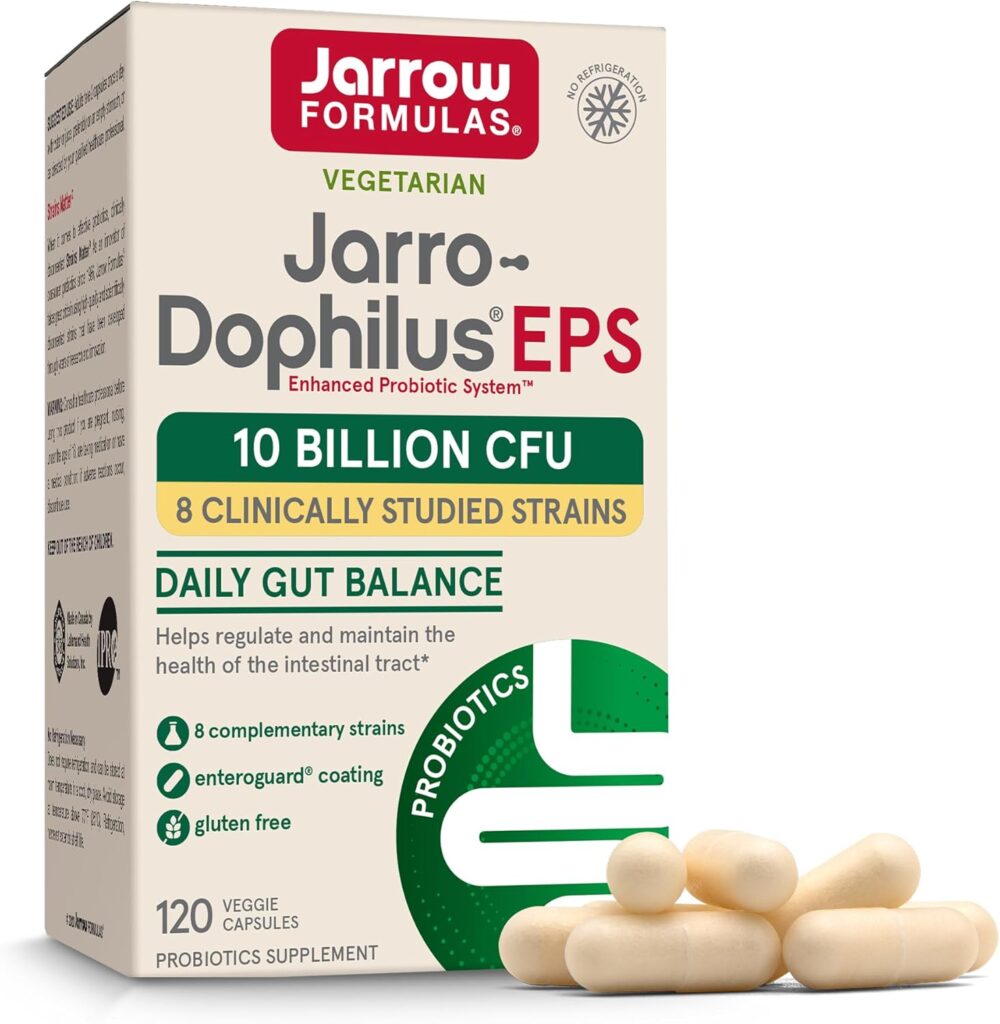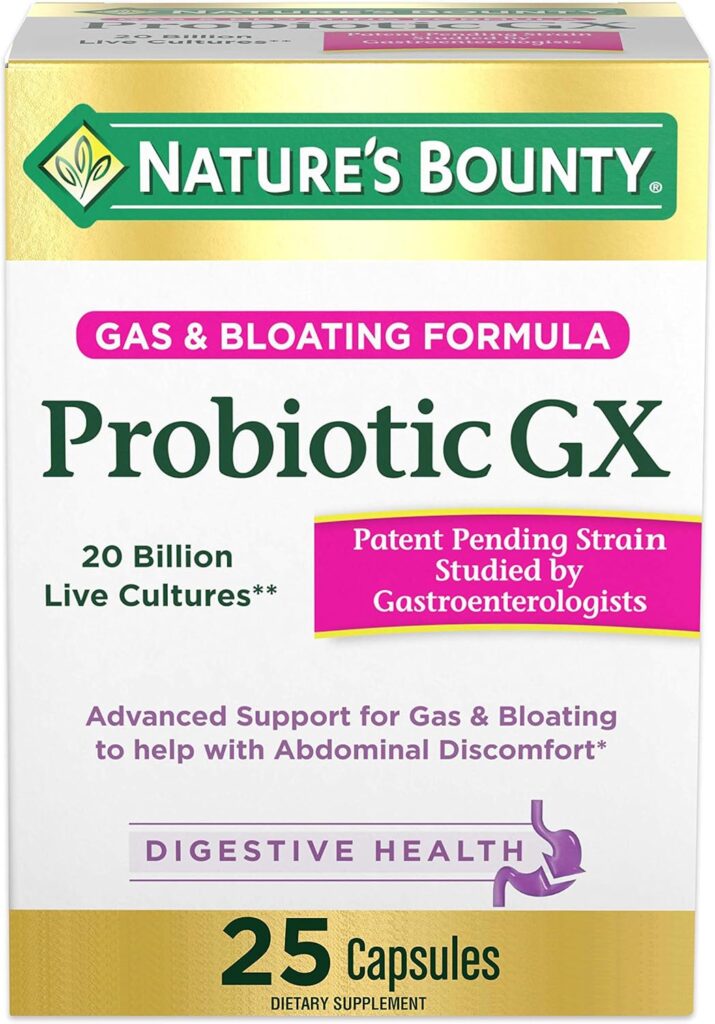The pursuit of better sleep and reduced anxiety is a universal challenge, with millions seeking effective and natural solutions. Probiotics, often celebrated for their gut health benefits, are now gaining recognition as a powerful ally in mental well-being and sleep improvement. These beneficial bacteria don’t just support digestion—they also play a pivotal role in the intricate relationship between the gut and the brain making choosing probiotics for help with sleep and anxiety a no brainer.
This article explores the science behind probiotics, their potential to alleviate sleep and anxiety issues, and the best products to help you achieve these goals.
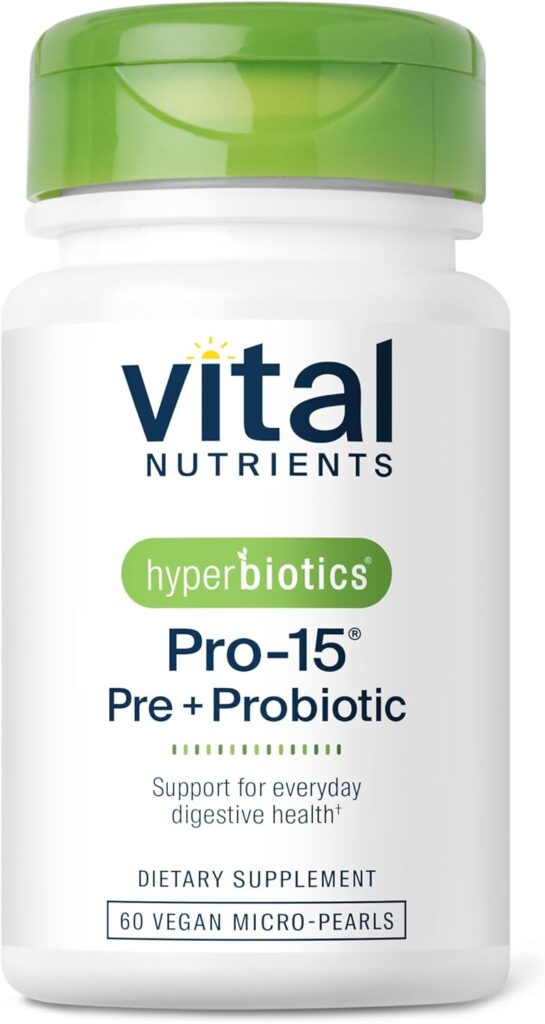
This post contains affiliate links. If you make a purchase through these links, I may earn a commission at no additional cost to you.
The Gut-Brain Connection
The gut-brain connection is a fascinating and complex relationship that underscores how deeply intertwined physical and mental health are. The gut, often referred to as the “second brain,” contains the enteric nervous system—a vast network of neurons that communicate directly with the brain via the vagus nerve. This two-way communication regulates essential processes like mood, stress responses, and sleep patterns.
At the heart of this connection is the gut microbiome, a dynamic ecosystem of trillions of bacteria that influence neurotransmitter production. For instance, approximately 90% of serotonin, the neurotransmitter responsible for mood regulation, is produced in the gut. Similarly, the microbiome affects gamma-aminobutyric acid (GABA), a key calming neurotransmitter that supports relaxation and restful sleep.
Disruptions to the gut microbiome—caused by poor diet, stress, or illness—can lead to imbalances in these neurotransmitters, contributing to anxiety and insomnia. Probiotics work to restore balance by replenishing beneficial bacteria, reducing inflammation, and enhancing the gut’s ability to communicate effectively with the brain. This powerful gut-brain axis serves as the foundation for how probiotics can improve sleep and mental health.
How Probiotics Can Help with Sleep
Probiotics are increasingly recognized for their ability to enhance sleep quality by addressing both physical and psychological factors that influence rest. They work holistically to support the gut-brain axis, ensuring that the body is well-prepared for restorative sleep. Here are several additional ways probiotics can contribute to a better night’s rest:
1. Enhancing Microbiome Diversity
A diverse gut microbiome is linked to better overall health, including sleep. Probiotics help cultivate a thriving community of beneficial bacteria, which in turn improves the gut’s ability to produce sleep-supporting neurotransmitters like serotonin and GABA. A balanced microbiome can also reduce the impact of stress hormones that interfere with sleep.
2. Supporting Circadian Rhythm
The gut microbiome plays a role in regulating the body’s internal clock, or circadian rhythm. Probiotics help maintain a stable gut environment, which supports consistent sleep-wake cycles. Disruptions to the circadian rhythm, such as jet lag or irregular sleep schedules, can be mitigated by improving gut health through targeted probiotics.
3. Reducing Stress-Induced Insomnia
Stress often manifests physically, leading to increased heart rate and tension that can disrupt sleep. Probiotics have been shown to alleviate the physical symptoms of stress by promoting the production of calming neurotransmitters and reducing cortisol levels. This creates a physiological state conducive to relaxation and sleep.
- Top Product Recommendation: Seed Synbiotic Probiotic
- This advanced formula combines prebiotics and probiotics to support gut barrier integrity and reduce stress-induced inflammation, helping to create an optimal environment for restorative sleep.
4. Addressing Sleep Fragmentation
Probiotics may also play a role in reducing sleep fragmentation, where individuals wake frequently throughout the night. A healthy gut microbiome helps stabilize blood sugar levels and reduce inflammation, both of which are common culprits of interrupted sleep patterns.
- Top Product Recommendation: Bio-Kult Advanced Gut Health Multi-Strain Probiotic
- With 14 different strains of beneficial bacteria, this supplement targets multiple aspects of gut health, improving both sleep continuity and overall well-being.
5. Boosting Mental Clarity Upon Waking
Poor sleep often leads to grogginess and brain fog in the morning. By supporting a balanced gut microbiome, probiotics can improve the efficiency of the body’s detoxification processes during sleep. This not only enhances sleep quality but also ensures a refreshed and energized feeling upon waking.
- Top Product Recommendation: Hyperbiotics PRO-15
- This time-release probiotic delivers beneficial bacteria throughout the day and night, ensuring consistent support for gut health and better mornings.
6. Regulating Sleep Hormones
Probiotics can influence the production of melatonin, the hormone responsible for regulating sleep-wake cycles. Certain strains, such as Lactobacillus and Bifidobacterium, have been shown to enhance melatonin synthesis and improve sleep quality.
- Top Product Recommendation: Garden of Life Dr. Formulated Probiotics Mood+
- This probiotic blend includes Lactobacillus helveticus and Bifidobacterium longum, which support mood and relaxation, helping prepare the body for restful sleep.
7. Reducing Inflammation
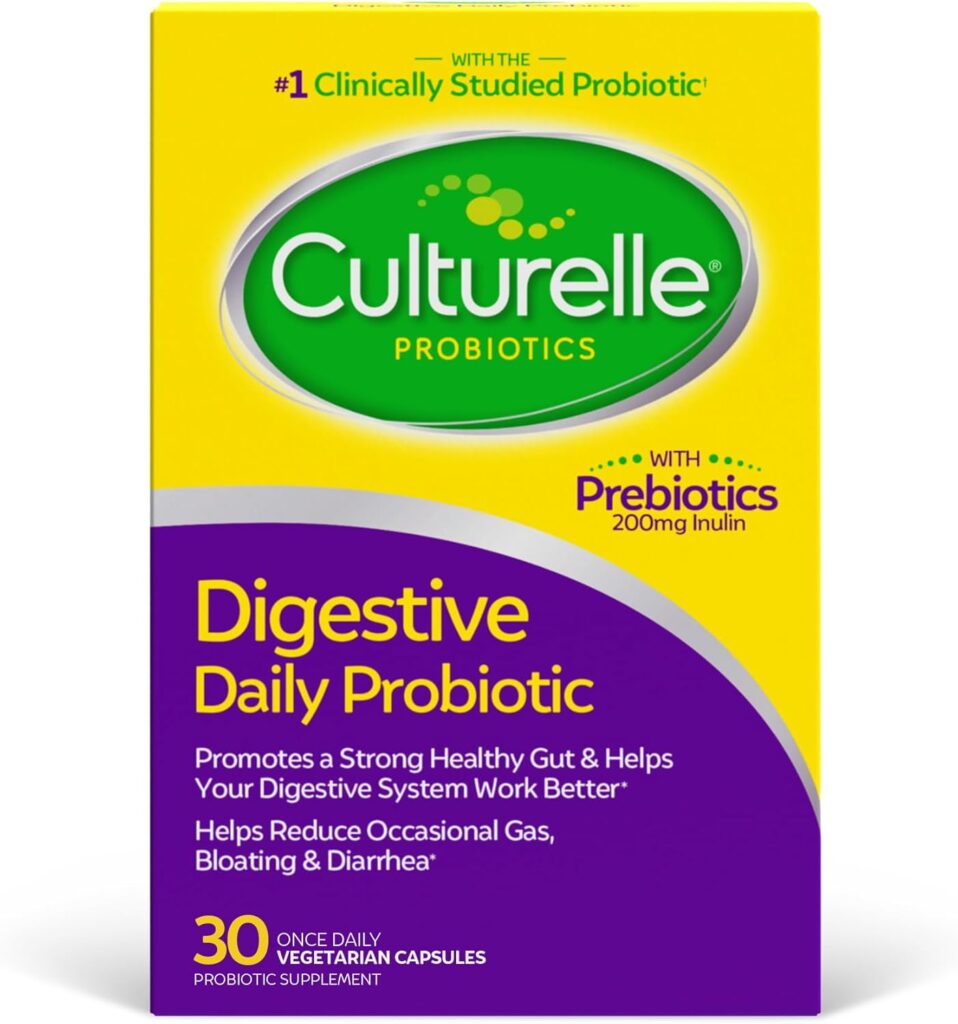
Chronic inflammation can disrupt sleep and exacerbate anxiety. Probiotics help by balancing the gut microbiome, reducing inflammatory markers, and promoting overall wellness.
- Top Product Recommendation: Culturelle Digestive Health Probiotic
- With Lactobacillus rhamnosus GG, this product is well-regarded for reducing inflammation and improving gut health, indirectly benefiting sleep and mental clarity.
8. Improving Gut Motility
Digestive discomfort, such as bloating or indigestion, can make it difficult to relax and fall asleep. Probiotics help regulate gut motility, ensuring a comfortable night’s rest.
- Top Product Recommendation: Align Probiotic Supplement
- Featuring Bifidobacterium 35624, this supplement supports digestive health and reduces gut-related sleep disturbances.
How Probiotics Can Help with Anxiety
1. Balancing Cortisol Levels
Cortisol, the stress hormone, can be elevated in individuals with anxiety. Probiotics, especially strains like Lactobacillus rhamnosus, have been shown to lower cortisol levels, reducing feelings of stress and promoting calmness.
- Top Product Recommendation: Renew Life Ultimate Flora Probiotic Extra Care
- This high-potency probiotic contains 50 billion live cultures, including Lactobacillus rhamnosus, to support stress reduction and emotional balance.
2. Enhancing GABA Production
Probiotics influence the production of GABA, a neurotransmitter that calms the nervous system and helps manage anxiety. Increased GABA activity can alleviate symptoms of stress and support relaxation.
- Top Product Recommendation: Jarrow Formulas Jarro-Dophilus EPS Probiotic
- This targeted probiotic includes strains that support GABA production, promoting relaxation and a positive mood.
3. Supporting Serotonin Synthesis
Around 90% of serotonin is produced in the gut. Probiotics help maintain a healthy gut environment, facilitating optimal serotonin production, which in turn reduces anxiety and improves mood.
- Top Product Recommendation: Nature’s Bounty Probiotic GX
- Combining probiotics with digestive enzymes, this product supports gut health and serotonin synthesis, addressing both anxiety and digestive discomfort.
>>>Check out the current price of Nature’s Bounty Probiotic GX on Amazon<<<
Probiotic Strains to Look For
When choosing probiotics for sleep and anxiety, certain strains have been shown to be particularly effective:
- Lactobacillus rhamnosus: Reduces cortisol levels and improves mood.
- Bifidobacterium longum: Supports relaxation and reduces inflammation.
- Lactobacillus helveticus: Enhances GABA production and reduces stress.
- Bifidobacterium bifidum: Promotes serotonin synthesis and gut motility.
Best Practices for Using Probiotics
- Consistency is Key: Probiotics take time to restore gut balance, so regular use is essential for long-term benefits.
- Combine with Prebiotics: Prebiotics are fibers that feed probiotics. Include foods like bananas, garlic, and onions in your diet to maximize effectiveness.
- Choose High-Quality Products: Look for probiotics with specific strains and clinically supported benefits. Refrigeration and proper packaging can also ensure potency.
- Time Your Intake: Some probiotics work best on an empty stomach, while others can be taken with meals. Follow the product’s instructions for optimal results.
Benefits Beyond Sleep and Anxiety
Probiotics offer a host of additional benefits that extend far beyond their ability to improve sleep and manage anxiety. These microorganisms play a critical role in maintaining overall health and wellness by addressing various systems in the body. Here are some of the other remarkable advantages probiotics provide:
1. Enhancing Digestive Health
A balanced gut microbiome ensures optimal digestion and nutrient absorption. Probiotics help reduce bloating, gas, and symptoms of irritable bowel syndrome (IBS), making digestion smoother and more efficient.
2. Supporting Hormonal Balance
The gut microbiome plays a role in metabolizing hormones like estrogen. Probiotics can help regulate hormone levels, reducing symptoms associated with hormonal imbalances such as mood swings, fatigue, and acne.
3. Improving Metabolic Health
Certain probiotic strains have been shown to support healthy blood sugar levels and improve insulin sensitivity. This can be especially beneficial for individuals managing type 2 diabetes or metabolic syndrome.
4. Reducing Allergy Symptoms
Probiotics can modulate the immune response, reducing the severity of allergic reactions. They help create a balanced immune system that is less prone to overreacting to allergens.
5. Enhancing Cardiovascular Health
By influencing cholesterol metabolism, probiotics can help reduce LDL (“bad” cholesterol) levels while increasing HDL (“good” cholesterol). This supports heart health and reduces the risk of cardiovascular diseases.
6. Promoting Mental Clarity and Productivity
Beyond reducing anxiety, probiotics enhance cognitive function by supporting the gut-brain axis. A balanced gut microbiome helps improve focus, memory, and productivity, making them valuable for mental sharpness throughout the day.
7. Alleviating Symptoms of Depression
Probiotic strains like Lactobacillus and Bifidobacterium have shown promise in reducing depressive symptoms by influencing serotonin production and reducing systemic inflammation.
8. Fostering Long-Term Wellness
Probiotics support a healthy microbiome that protects against chronic diseases, enhances longevity, and fosters resilience against environmental stressors.
9. Enhanced Immune Function
A healthy gut microbiome plays a crucial role in supporting the immune system. Probiotics help maintain a balance of beneficial bacteria, which can reduce the risk of infections and improve the body’s response to seasonal illnesses. By strengthening the immune system, probiotics contribute to overall resilience and health.
10. Improved Skin Health
The connection between gut health and skin conditions like acne, eczema, and rosacea is well-documented. Probiotics help by reducing inflammation and promoting a balanced gut microbiome, which can alleviate skin issues and enhance your complexion. A healthier gut often translates to clearer, more radiant skin.
11. Better Weight Management
Probiotics influence metabolism and appetite regulation by promoting the production of short-chain fatty acids in the gut. These fatty acids help regulate energy balance and reduce fat storage. Additionally, probiotics can help curb cravings and improve digestion, making them a valuable tool for weight loss and maintenance efforts.
Frequently Asked Questions (FAQ)
1. Can probiotics help with insomnia?
Yes, certain probiotic strains, like Lactobacillus helveticus and Bifidobacterium longum, have been shown to improve sleep quality by promoting relaxation and reducing inflammation.
2. How long does it take for probiotics to work for anxiety?
Results can vary, but many people notice improvements in mood and stress levels within 4-6 weeks of consistent use.
3. Are there any side effects of probiotics?
Probiotics are generally safe, but some individuals may experience mild bloating or gas initially. These symptoms usually subside as the body adjusts.
4. Can I combine probiotics with other supplements?
Yes, probiotics can be safely combined with supplements like magnesium or omega-3s to enhance sleep and mood support. Always consult a healthcare provider for personalized advice.
5. Are probiotics safe for children?
Certain probiotics are safe for children, but it’s essential to choose age-appropriate products and consult a pediatrician before use.
Conclusion
Probiotics for sleep and anxiety offer a natural, science-backed solution to common challenges. By balancing the gut microbiome, they influence key pathways that regulate mood, stress responses, and sleep cycles. From reducing cortisol levels to enhancing serotonin production, probiotics provide a multifaceted approach to improving mental and physical well-being. Choosing the right strains and high-quality products can help you harness the full potential of these beneficial bacteria.


